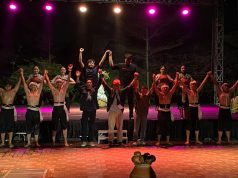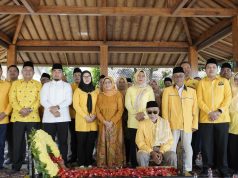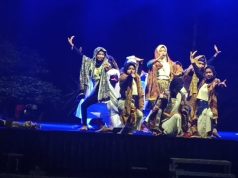CCN, Cilegon -The Bina Cendekia Optima (BCO) Foundation, in collaboration with the Cilegon City Education and Culture Office (Dindikbud), organized a training session on developing local content curriculum (muatan lokal) for the Cilegon Javanese Language and Literature, targeting primary school teachers.
During the vibrant training session, the keynote speaker was Ahdi Zukhruf Amri—a language practitioner and regional language researcher who has been active since founding Teater Wong Kite in 2004. He shared his initial ideas on the development of a local content curriculum for the Cilegon Javanese Language and Literature as a means of cultural preservation and reinforcing local identity.
“Regional languages are not merely tools for communication, but also reflections of culture and community identity,” Ahdi stated before the participants. He emphasized that in the face of accelerating globalization, preserving mother tongues is a shared responsibility, especially in the realm of education.
Ahdi explained that the Cilegon Javanese language—known locally as Jawa Bebasan or the Bantan dialect—carries rich dialectal features and local expressions. Therefore, it deserves a place in the curriculum, not just as a means of communication but also as a medium for character education.
“This local content initiative is rooted in the spirit of restoring dignity to our mother tongue. The Cilegon Javanese language holds values, history, and identity that should be introduced from an early age,” he asserted.
He further stressed that the development of a local content curriculum should not be treated as a mere formality but must be approached seriously and contextually, aligning with the daily lives of Cilegon’s residents. The learning materials are expected to cover not only vocabulary and grammar but also oral literature, local proverbs, and values of pluralism and local wisdom.
Teachers participating in the training welcomed the ideas enthusiastically. They expressed hopes for continued support through further training, teaching materials, and policy backing from the local government.
This training is regarded as a crucial first step toward presenting a living and relevant local content curriculum, and part of a broader movement to preserve culture starting from the classroom. (***)






